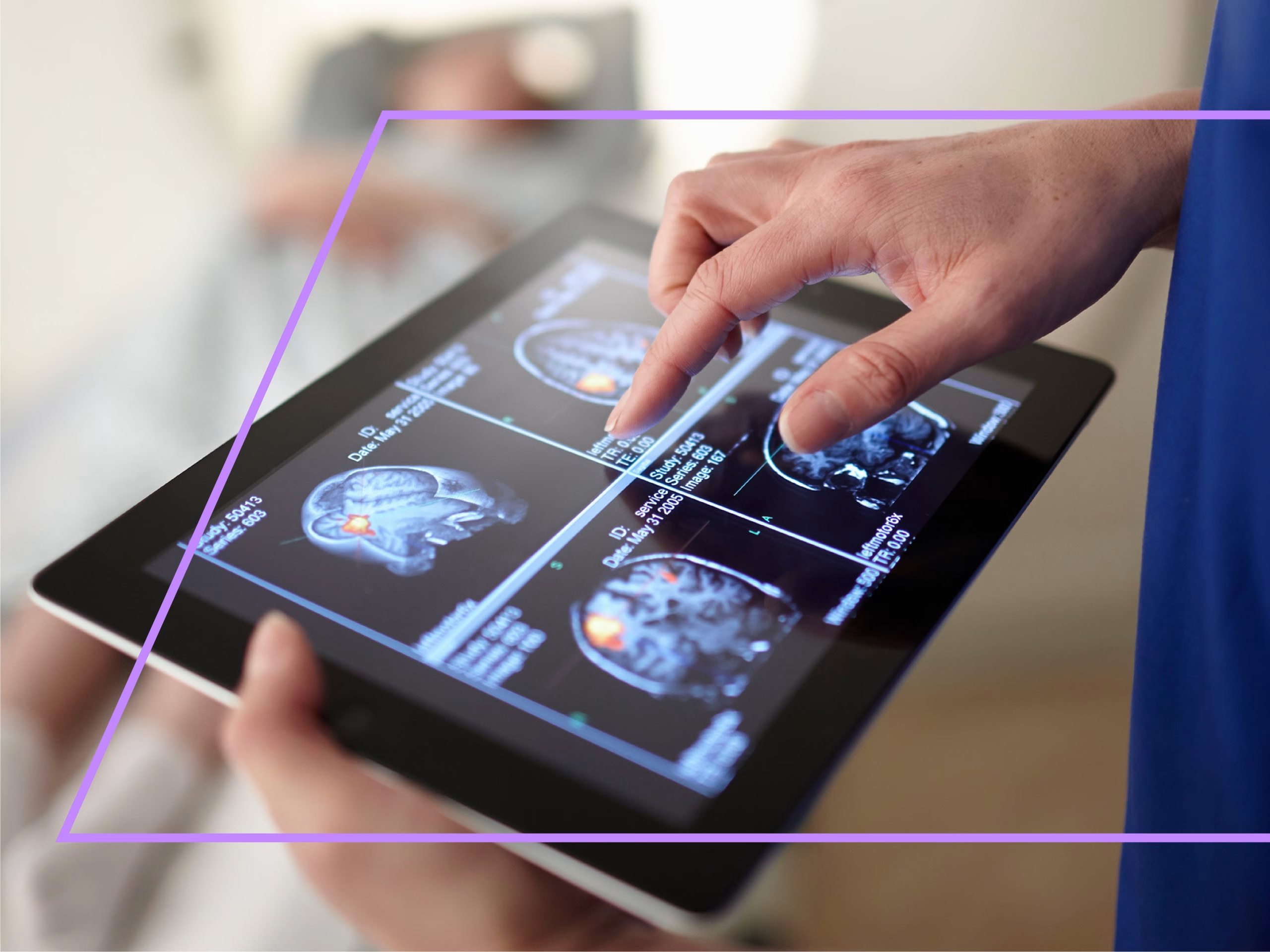Meeting Evolving Patient Expectations
A recent study found that improving the patient experience is a top priority for healthcare enterprises in 2024.i In fact, it is the #1 concern for large healthcare systems (those with revenues over $1.1 billion).
Focusing on a better experience has been increasing lately. Some healthcare providers have refocused on patient experience in the wake of pandemic-related service challenges. Others have come to recognize that rising out-of-pocket costs have led patients to feel more like retail consumers, with expectations of greater value from healthcare providers.
Additionally, there is a connection between a positive provider relationship and better health outcomes for patients. According to the Agency for Healthcare Research and Quality, patients with better care experiences have better outcomes, as seen in a variety of studies.1
Healthcare organizations have many strategies to make healthcare more consumer focused to improve the patient experience. These include personalization, accessibility, reduced paperwork, ease of communication, and more. Regardless of which strategies a provider employs, technology – including artificial intelligence – can help support these goals.

Generative AI: Learn and Build in a Sandbox Environment
Discover the potential of generative AI to transform your business with an immersive engagement focused on strategic applications of artificial intelligence to meet your business needs.
How Can AI Improve Patient Experience?
Artificial intelligence is transforming business processes and operations across industries, but one of the most exciting areas where AI can drive change is in healthcare. It can be used to ease administration, improve efficiency, support data insights, and enhance patient care. Some key use cases for AI in healthcare – with a focus on the patient experience – include:
Communication
A recent study found that by 2025, over 85% of customer interactions in healthcare will be managed by AI. This will reduce the need for human intervention and allow more time for interactions between patient and provider.2
Personalized Treatment Plans
AI can analyze vast amounts of patient data, including medical history, genetics, and lifestyle, to create personalized treatment plans. This ensures that patients receive care tailored to their specific needs and conditions.
Virtual Health Assistants
AI-powered chatbots and virtual assistants can provide patients with 24/7 access to medical information, answer questions, schedule appointments, and offer medication reminders. This can improve access to care and ensure patients feel supported between visits.

Healthcare and AI: Systems of Scalable Empathy
Combining scalability and putting people at the heart gives us a new opportunity: to create systems of scalable empathy.
Remote Monitoring and Telehealth
AI can enable remote monitoring of patients through wearable devices that track vital signs and other health metrics. This continuous monitoring allows for early intervention if any concerning trends are detected, improving patient outcomes, and reducing hospital readmissions.
Enhanced Patient Education and Engagement
AI can deliver personalized health education materials and resources to patients, helping them understand their conditions and treatment options. This can increase patient engagement and adherence to treatment plans.
Medication Management
AI can help in medication management by predicting potential drug interactions, suggesting optimal dosing, and reminding patients to take their medications. This reduces the risk of adverse drug reactions and improves adherence to treatment regimens.

Future of Healthcare Tech
Get an insider look into the future of technology in healthcare. Our expert insights will help you stay ahead and stay informed.
Diagnosis and Treatment
One of the areas where AI applications in healthcare arouse the most skepticism is diagnosis and treatment. However, a recent study from Mass General found that AI achieved a similar diagnostic accuracy to doctors at 72% in overall clinical decision making.3
Predictive Analytics for Early Diagnosis
AI algorithms can detect patterns in medical data that may indicate the early stages of diseases. By identifying these patterns early, AI can help doctors diagnose conditions sooner, leading to more effective and timely treatments.
Enhanced Imaging and Diagnostics
AI can improve the accuracy of imaging and diagnostic tools. For example, AI can analyze medical images (such as X-rays, MRIs, and CT scans) with high precision, assisting radiologists in detecting anomalies that may be missed by the human eye.
Optimized Treatment Recommendations
By analyzing data from clinical trials, medical literature, and real-world patient outcomes, AI can provide healthcare professionals with evidence-based treatment recommendations. This ensures patients receive the most effective and up-to-date care.
Patient Risk Stratification
AI can help identify patients at high risk of developing complications or requiring intensive care. By stratifying patients based on risk, healthcare providers can allocate resources more effectively and provide targeted interventions.
Clinical Decision Support Systems (CDSS)
AI-based CDSS can provide real-time support to clinicians by offering evidence-based recommendations during patient consultations. This aids in diagnosing complex cases and choosing the best treatment options.

Scale and Optimize Healthcare Workloads in the Cloud
Healthcare organizations need flexible, scalable and simple solutions for running enterprise workloads. But successfully — and quickly — deploying or migrating to the cloud requires a strong foundation.
Streamlined Operations
Administrative Processes
AI can automate administrative tasks such as billing, coding, and appointment scheduling, reducing the burden on healthcare staff and minimizing errors.
In fact, Epic and Microsoft are using generative AI and Large Language Models (LLMs) to create a medical ‘co-pilot’ program. This co-pilot will ease the burden of documentation associated with summarizing notes, coding, and billing, which now falls to the providers themselves. This will save the time required for admin, allowing healthcare providers to focus more on patient care.4
Reduction of Human Error
By automating repetitive and complex tasks, AI reduces the likelihood of human error in diagnosis, treatment, and medication administration, leading to safer patient care.
Natural Language Processing (NLP)
AI can analyze unstructured data from electronic health records (EHRs) to extract valuable insights about patient health, treatment efficacy, and potential risks. This enables more informed decision-making by healthcare providers.
The integration of artificial intelligence in healthcare administration is not merely a technological advancement but a significant step towards improving patient care. As healthcare systems increasingly prioritize the patient experience, AI emerges as a vital tool in meeting evolving patient expectations and enhancing overall service delivery. From personalized treatment plans and virtual health assistants to predictive analytics and streamlined operations, AI offers myriad benefits that can transform how healthcare providers interact with patients and manage their operations.
By automating administrative tasks and reducing the burden on healthcare staff, AI enables professionals to focus more on direct patient care, improving both efficiency and outcomes. The potential of AI to support better communication, personalized care, and early diagnosis underscores its role as a crucial partner in the healthcare ecosystem. As we move forward, the continued adoption of AI technologies promises a more responsive, efficient, and patient-centric healthcare system.
If you’re interested in exploring the potential benefits of administrative applications for AI in healthcare, check out the rest of the blog series! And as always, if you’d like to explore modernizing healthcare technology at your organization, please reach out any time. We’d love to hear from you!

3 Challenges in Modernizing Healthcare Technology
Many healthcare organizations are faced with the urgent requirement to update legacy technology to help their businesses succeed in a competitive environment.


